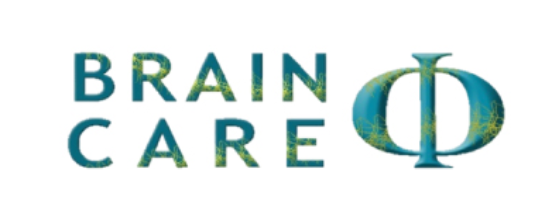The Transformative Power of Positive Behaviour Therapy
Behaviours of concern are escalated behaviours that impact upon the wellbeing and safety of an individual and the people who live with them and care for them. The causes of behaviour issues are many and varied, sometimes stemming from genetic or environmental factors, and can be found in children and adults alike. Often, these behaviours of concern are found in people with diagnoses such as Traumatic (internal) Brain Injury (TBI), Acquired (external) Brain Injury (ABI), Post Traumatic Stress Disorder (PTSD), Intellectual Deficit Disorder (IDD), Autism Spectrum Disorder (ASD), Oppositional Defiant Disorder (ODD), and Conduct Disorder (CD).
In the realm of mental health treatment, Positive Behaviour Therapy (PBT) stands out as a beacon of hope and transformation. Rooted in the principles of positive psychology and Cognitive-Behavioural Therapy (CBT), Positive Behaviour Therapy offers a holistic approach to fostering personal growth, resilience, and well-being. By emphasizing strengths, virtues, and adaptive coping strategies, PBT empowers individuals to overcome challenges, cultivate positive habits, and lead fulfilling lives.
Understanding Positive Behaviour Therapy
Positive Behaviour Therapy represents a fusion of two influential therapeutic frameworks: positive psychology and cognitive-behavioural therapy. Positive psychology, pioneered by psychologist Martin Seligman and his colleagues, focuses on the study of human strengths, virtues, and flourishing. It emphasizes the importance of cultivating positive emotions, fostering meaningful relationships, and identifying one's unique strengths to enhance well-being.
On the other hand, Cognitive-Behavioural Therapy (CBT) is a widely practiced approach to psychotherapy that addresses maladaptive thoughts, emotions, and behaviours. CBT operates on the premise that our thoughts influence our feelings and actions, and by identifying and challenging negative thought patterns, individuals can modify their behaviour and improve their mental health.
Positive Behaviour Therapy integrates the principles of positive psychology with the practical techniques of CBT to create a comprehensive framework for promoting positive change. It acknowledges the interconnectedness of thoughts, emotions, and behaviours while emphasizing the cultivation of positive emotions, strengths-based interventions, and goal-oriented strategies for personal growth.
The Core Principles of Positive Behaviour Therapy
Strengths-Based Approach
At the heart of Positive Behaviour Therapy lies a strengths-based perspective that focuses on identifying and leveraging individuals' inherent strengths, talents, and resources. Rather than dwelling on deficits and pathology, PBT encourages clients to recognize their unique capabilities and harness them to overcome challenges and achieve their goals.
Positive Emotions and Resilience
Positive Behaviour Therapy places a strong emphasis on cultivating positive emotions such as gratitude, optimism, and resilience. By fostering a positive emotional outlook, individuals can build psychological resilience, buffer against stressors, and navigate life's challenges with greater equanimity and grace.
Goal Setting and Action Planning
Central to the practice of Positive Behaviour Therapy is the establishment of clear, achievable goals and the development of action plans to attain them. Clients work collaboratively with therapists to define meaningful objectives, break them down into manageable steps, and implement concrete strategies to progress towards their desired outcomes.
Behavioural Activation
Behavioural activation is a key technique employed in Positive Behaviour Therapy to counteract depression and enhance mood regulation. By engaging in rewarding and meaningful activities that align with one's values and interests, individuals can experience a sense of accomplishment, pleasure, and purpose, thereby alleviating symptoms of depression and enhancing overall well-being.
Cognitive Restructuring
Building on the principles of cognitive-behavioural therapy, Positive Behaviour Therapy incorporates techniques for cognitive restructuring to challenge and reframe negative thought patterns. By identifying cognitive distortions and replacing them with more balanced and adaptive perspectives, individuals can cultivate a more optimistic and constructive mindset.
Strengths Assessment
A strengths assessment involves identifying and evaluating one's unique strengths, talents, and character virtues. By recognizing and leveraging their innate capabilities, individuals can enhance self-awareness, boost self-esteem, and pursue paths that align with their authentic selves.
Behaviours of Concern and Disability: NDIS Positive Behaviour Support Plan
Behavioural support focuses on evidence-based strategies and person-centred supports that address the needs of the person with a disability and the underlying causes of behaviours of concern, while safeguarding the dignity and quality of life of people with disability who require specialist behaviour support. Behavioural support focuses on evidence-based strategies and person-centred supports that address the needs of the person with a disability and the underlying causes of behaviours of concern, while safeguarding the dignity and quality of life of people with disability who require specialist behaviour support.
Functional Behaviour Assessment
This assessment aims at understanding the rationale behind an individual’s behaviour. In other words, why do they behave they way they do. For example, behaviours may represent a way of self-soothing, or it may be a channel to express feelings or wants. Often there are several psychometric assessments involved, as well as behavioural observation.
Behavioural Observation
Behavioural observation involves testing hypotheses and challenging maladaptive beliefs through real-world experiences. Behavioural observation often involves documenting situations, triggers, escalation, and responses to the behaviour. This documentation serves as the basis to develop an individualised response plan, which is useful where a disability has been diagnosed. Plans often include minimising triggers, de-escalating responses and positive reinforcement.
NDIS Positive Behaviour Support Plans (BSP)
By following a behavioural plan, families and health professionals can assist individuals to refute negative assumptions, build self-confidence, and expand their comfort zones. At our psychology clinic in Tweed Heads, we offer both counselling and the development and implementation of Positive Behaviour Support Plans for NDIS participants.
The Transformative Potential of Positive Behaviour Therapy
Regardless of the causes of behaviours or concern, Positive Behaviour Therapy holds immense transformative potential for individuals seeking to enhance their mental health and well-being. By shifting the focus from pathology to strengths, from negativity to positivity, PBT empowers individuals to reclaim agency over their lives and embark on a journey of self-discovery and growth. Some of the key benefits of Positive Behaviour Therapy include:
Enhanced Well-Being and Life Satisfaction
Positive Behaviour Therapy has been shown to enhance overall well-being and life satisfaction by fostering positive emotions, nurturing relationships, and promoting a sense of purpose and meaning in life. Through the cultivation of gratitude, optimism, and resilience, individuals can experience greater levels of happiness and fulfillment.
Improved Mental Health Outcomes
Positive Behaviour Therapy has demonstrated efficacy in treating a wide range of mental health conditions, including depression, anxiety, and stress-related disorders. By equipping individuals with practical tools and strategies for coping with adversity, PBT helps alleviate symptoms, prevent relapse, and promote long-term recovery.
Enhanced Coping Skills and Resilience
Positive Behaviour Therapy equips individuals with adaptive coping skills and resilience-building strategies to navigate life's challenges with greater ease and grace. By cultivating a growth mindset, reframing setbacks as opportunities for learning and growth, individuals can bounce back from adversity and emerge stronger and more resilient.
Improved Relationships and Social Support
Positive Behaviour Therapy emphasizes the importance of nurturing positive relationships and building a supportive social network. By fostering empathy, compassion, and effective communication skills, individuals can strengthen their interpersonal connections, enhance intimacy, and experience greater levels of social support and belonging.
Personal Growth and Self-Actualization
Perhaps most importantly, Positive Behaviour Therapy facilitates personal growth and self-actualization—the process of realizing one's fullest potential and becoming the best version of oneself. By embracing their strengths, pursuing their passions, and living in alignment with their values, individuals can embark on a journey of self-discovery and fulfillment.
Finding a BSP Practitioner - Tweed Heads, Gold Coast and Northern NSW
Positive Behaviour Therapy represents a transformative approach to mental health treatment that empowers individuals to cultivate positive emotions, harness their strengths, and lead flourishing lives. By integrating the principles of positive psychology with the practical techniques of Cognitive-Behavioural Therapy, PBT offers a holistic framework for promoting positive behaviour, well-being, resilience, and personal growth, no matter the age or the circumstances of an individual.
Seek out an NDIS-registered psychologist, social worker, counsellor, or other mental health professional . While there isn’t a specific certification for BSP practitioners, many develop their skills through peer counselling, professional workshops, and training programs. NDIS-registered providers must comply with NDIS requirements. Equally important is finding a therapist with whom you feel at ease.
If you or your loved one is experiencing behaviour struggles and are ready to get support, contact our psychology clinic in Tweed Heads, where assessments, counselling and therapeutic supports are available for children, teens, adults, couples and families. Often the first step is the hardest, but Brain Care is here to support you through the rest of your journey.


